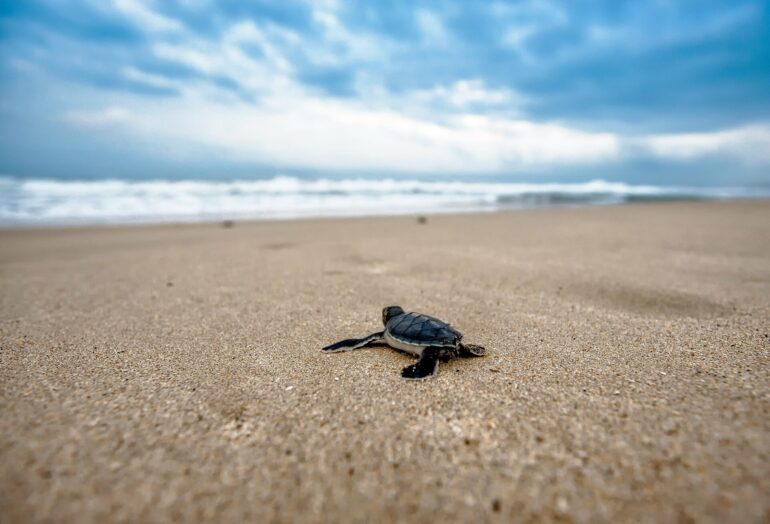Most animals alive today are ectothermic, or cold-blooded, which means that they are at the mercy of their environment when it comes to regulating their body temperature.
Because an increase in body temperature increases the rate at which animals use energy (an animal’s metabolic rate), human-induced climate warming is expected to increase the energetic cost of living for ectotherms.
However, research by two early-career Monash University biologists provides new insights about the effect of climate change on the energetic cost of living for ectotherms.
This research, published in Nature Climate Change, suggests we may be underestimating the energetic costs of climate warming for ectotherms, like insects. Using a model insect species—the fruit fly, Drosophila—the research team discovered that when two species interact at warmer temperatures their energy expenditure increases.
“We found that developing with another species at warmer temperatures caused adult flies to be more active, which in turn, caused these flies to have higher rates of energy expenditure compared to those flies that developed at warmer temperatures without another species,” said lead study author Dr. Lesley Alton, from the School of Biological Sciences.
“Our results highlight that studying the responses of ectotherms to changes in temperature under more ecologically realistic conditions where species must interact is likely to alter and improve our understanding of how climate warming may impact the energy demands of natural populations,” said senior study author Dr. Vanessa Kellermann, also from the School of Biological Sciences.
Using the results of their experiment, Dr. Alton and Dr. Kellermann modeled the metabolic responses of adult flies under an intermediate climate-warming scenario across the global range of Drosophila to gain insight into the energetic costs of climate warming for ectotherms with and without species interactions.
“Our model simulations show that we risk underestimating the energy needs of ectotherms in a warming world by 3–16% if we fail to account for interactions between species,” Dr. Alton said.
“Our study is an advance on previous estimates of the energetic costs of climate warming for ectotherms because it also incorporates effects of species interactions on animal behavior, something that has been lacking from previous purely physiological approaches,” she said.
More information:
Lesley A. Alton et al, Interspecific interactions alter the metabolic costs of climate warming, Nature Climate Change (2023). DOI: 10.1038/s41558-023-01607-6
Citation:
Living in a warmer world may be more energetically expensive for cold-blooded animals than previously thought (2023, March 3)



